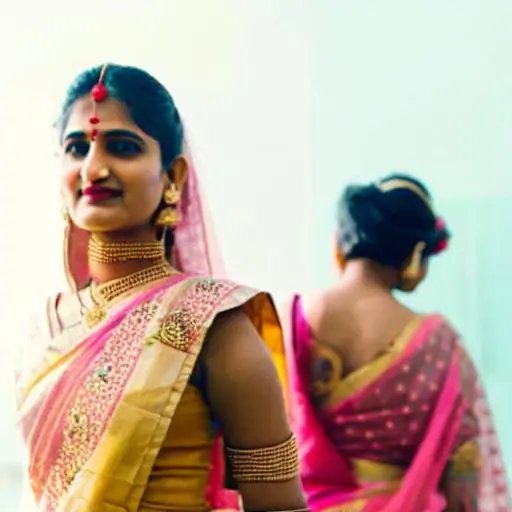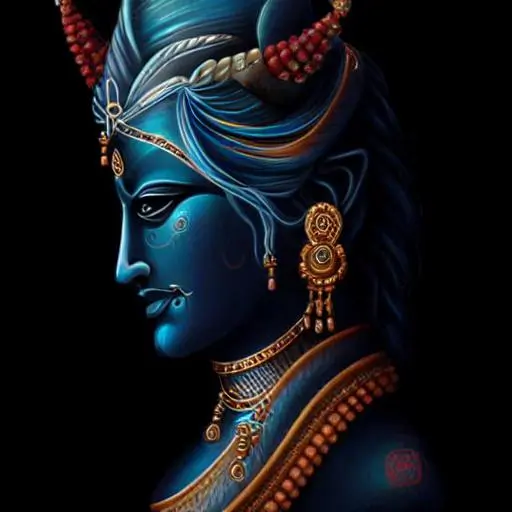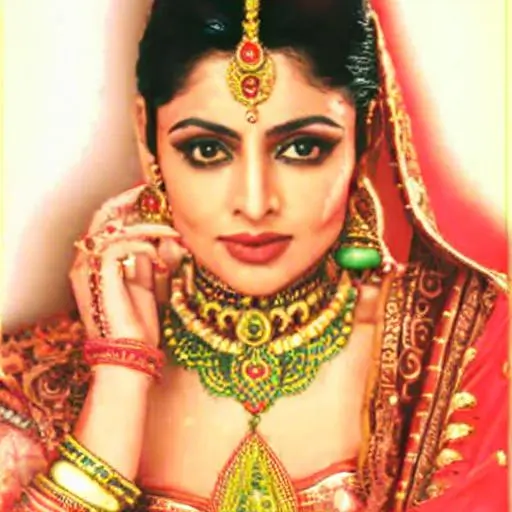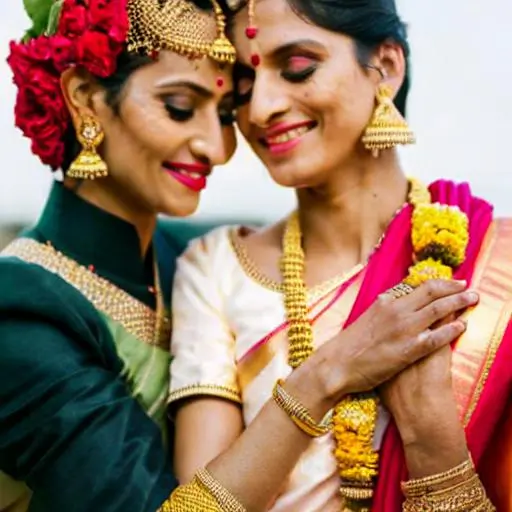Honoring the Sacred Soul Beyond Gender: Celebrating Diversity and Inclusivity in Hindu Philosophy
The Soul: Transcending Gender and Physical Form
As the LGBTQ couples in India still await for the final verdict on Same-Sex marriage, Hinduism, with its profound teachings, reminds us that we are all manifestations of the eternal soul, referred to as “ATMA,” residing within the human bodies.
This philosophy emphasizes the essence of our existence beyond the limitations of gender or physical form, and acknowledges the divine nature of every soul, thus encouraging a holistic view that transcends biases and societal constructs.

Table of Contents
It reminds us that the expression of love, commitment, and partnership through marriage is not confined to any specific gender.
Within the Hindu scriptures and teachings, there are numerous instances where love and devotion are celebrated irrespective of gender.

The concept of Ardhanareeshvara, for instance, portrays the divine as a harmonious union of masculine and feminine energies, emphasizing the inherent unity and balance of these aspects within each individual, transcending the boundaries of gender.
Ardhanareeshvara is a combination of three words “Ardha,” “Nari,” and “Ishwara” means “half,” “woman,” and “lord,” respectively, which when combined means the lord whose half is a woman. It is believed that the God is Lord Shiva and the woman part is his consort Goddess Parvati or Shakti.
If you wish to paste this article on your website or use it in on you tube or in any other format, give credits to the author of this article and a link back to this website.
The Soul
Before you read further, it is important to clarify that many mistakenly use the term ‘SOUL’ for ‘MIND.’ A human being is made up of Mind, Body & Soul. Despite our education and familiarity with the mind and body, there is often a lack of knowledge and understanding when it comes to the concept of the Soul.
The soul is an integral part of consciousness, like a water droplet in the ocean.
For instance, when a person dies, it is the soul that separates from the body, and only then the person is declared dead.
Chapter 2, Verse 13: Bhagavad Geeta
dehino ‘smin yatha dehe
kaumaram yauvanam jara
tatha dehantara-praptir
dhiras tatra na muhyati
‘As the embodied soul continually passes, in this body, from boyhood to youth to old age, the soul similarly passes into another body at death. The self-realized soul is not bewildered by such a change‘
The Wisdom From Mahabharat
Some individuals remember their past births and sometimes carry forward tendencies and attractions for the opposite sex. There is nothing wrong with this, as Hinduism recognizes and embraces these experiences as natural expressions of personal growth and evolution across lifetimes.
The Mahabharata, a major Sanskrit epic of ancient India in Hinduism, explicitly teaches us about the soul.
Shikhandi, a prince, was a reincarnation of Princess Amba. Shikhandi remembered his past life as Princess Amba and took an oath to seek revenge from Bhishma for insulting him in his previous birth.
Even in present times, there are people who remember their past lives and know that they were in different bodies in their previous births.
This, in itself, is proof that consciousness (that which we truly are) extends far beyond the concept of physical bodies or gender. The SOUL may be given the body of a man or a woman in its next birth, therefore, one must not create concepts of the RIGHT WAY OF LOVE being only between a man and a woman.
The SOUL changing the bodies, also implies that some individuals may carry forward tendencies and attractions from their past lives. These inclinations can shape their current lifetime and manifest as an inherent attraction towards the same sex. Hinduism acknowledges these experiences and tendencies as natural expressions of personal growth and evolution across lifetimes.
Bhagavad Geeta Chapter 2: Verse 22
vasamsi jirnani yatha vihaya
navani grhnati naro ‘parani
tatha sarirani vihaya jirnany
anyani samyati navani dehi
‘As a person puts on new garments, giving up old ones, similarly, the soul accepts new material bodies, giving up the old and useless ones.‘
SOUL(ATMA) in Christianity –
Matthew 10:28: “Do not be afraid of those who kill the body but cannot kill the soul.
This verse suggests that humans consist of soul, highlighting the distinct nature of the soul in the body.
SOUL(ATMA) in Sikhism –
In Sikhism, a verse from the Guru Granth Sahib Ji, the Holy Book of Sikhs, offers mystical insights into the soul’s journey.
It speaks of various lifetimes where the soul has experienced existence in diverse forms, emphasizing its eternal journey and ultimate goal of attaining union with the divine.
A verse from Guru Granth Sahib Ji (the Holy Book of Sikhs) teaches us in Rag Gauri, Mehla Panja. It states-
“कई जन्म भये कीट पतंगा कई जन्म भये गज मीन कुरंगा
कई जन्म पंखी सर्प होयो। कई जनम हैवर बिरछ जोइओ I
चिरंकाल एह देह संझरिया मिल जगदीश मिलान की बरिया।“
The verse can be roughly translated into English as follows:“In many births, I have been a crawling insect and a winged creature.
In many births, I have been an elephant, a fish, and a deer.
In many births, I have been a bird and even a serpent.
Throughout countless ages and lifetimes, I have adorned and discarded this physical body, seeking the divine union with the Lord.”
HONORING THE DIVINITY IN EVERY INDIVIDUAL
At the core of Hindu teachings lies the profound concept of honoring the inherent divinity within every human being, exemplified by the wisdom of Sri Krishna.
Recognizing the sacred nature of the soul, Hinduism emphasizes the importance of respect and compassion towards all individuals, irrespective of their choices and preferences, including the selection of their life partners.
Respecting the soul, or ATMA, within each person entails acknowledging the inherent worth, dignity of every individual. By extending respect to others’ choices in selecting their partners, we also embrace the fundamental principle of honoring individual autonomy and the diversity of human experiences.

It means recognizing that individuals have the right to make decisions that align with their own happiness and well-being, particularly when it comes to matters as personal as choosing a life partner.
In the Bhagavad Gita, Sri Krishna teaches individuals to cultivate a mindset of acceptance, understanding, and non-judgment towards the choices made by others.
It encourages us to recognize that different people have diverse paths, and their choices are influenced by their unique circumstances, preferences, and spiritual evolution.
Bhagavad Geeta Chapter 15, verse 7
mamaivamso jiva-loke
jiva-bhutah sanatanah
manah-sasthanindriyani
prakrti-sthani karsati
The living entities in this conditioned world are My eternal, fragmental parts. Due to conditioned life, they are struggling very hard with the six senses, which include the mind.
In conclusion, all the teachings on the soul, love, and relationships from various religions remind us of the sacred nature of every individual and guide us to respect the soul within each individual.
By embracing the diversity of attractions and choices, we can cultivate empathy, respect, and inclusivity towards those whose experiences may differ from our own and honor the choices people make for their life partners.
Want to hire me to write articles on Religion , Philosophy and Spirituality for you? Feel free to drop a mail at kashishg.writer@gmail.com.
If you liked this article, kindly support my work. You may do so here.
Let us strive to create a world where the soul within each person is honored, and love is celebrated in all its beautiful forms.

